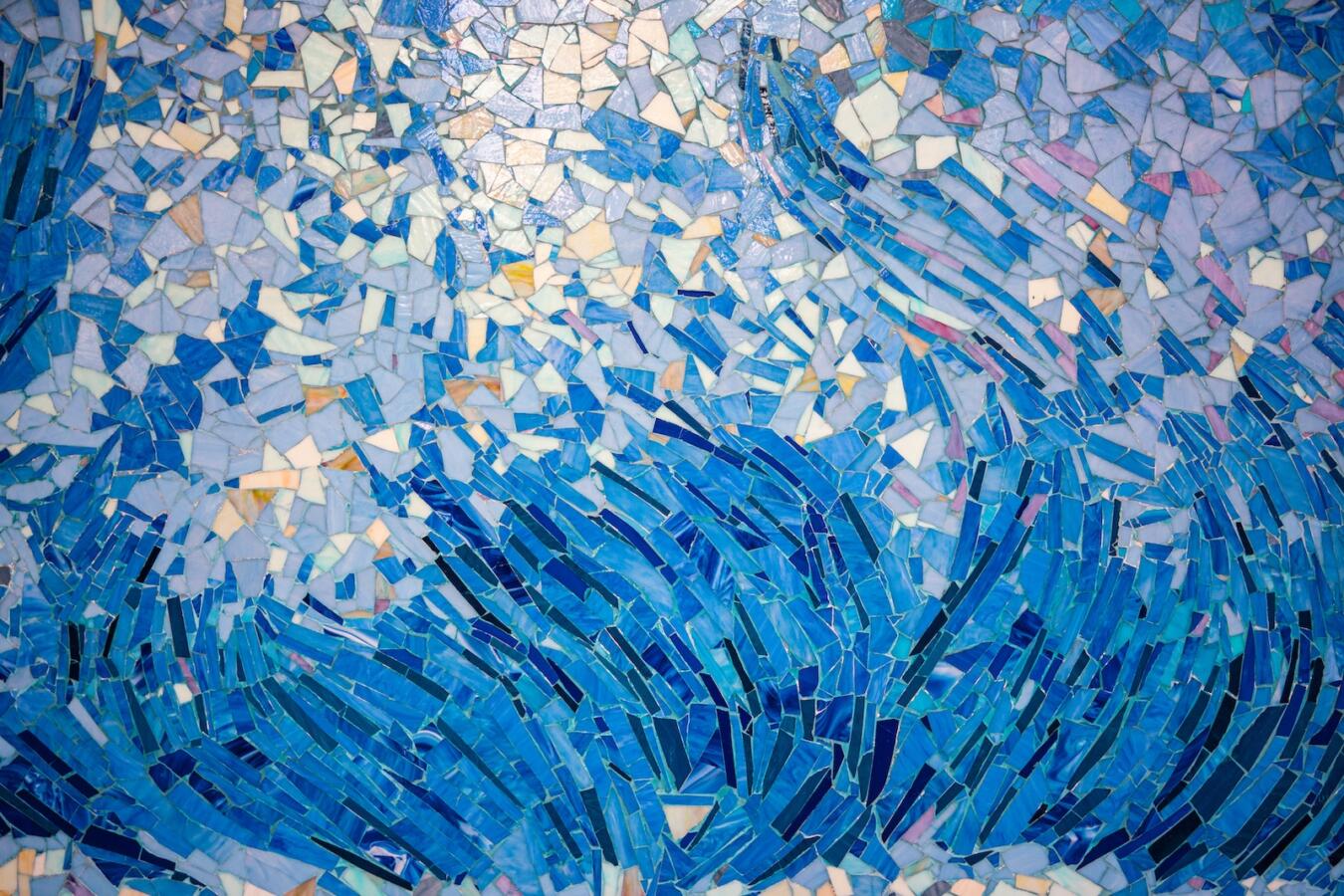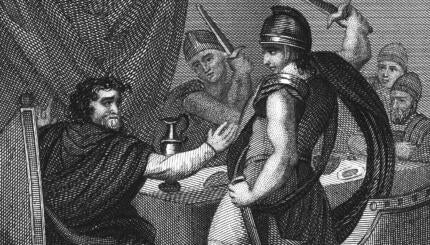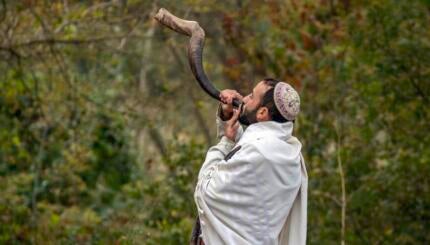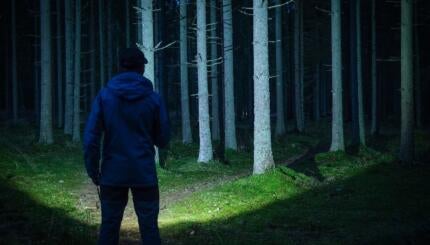In the beginning, Torah teaches us that creation emerges not in spite of chaos, but through it.
The opening of Torah is not a neat command but a wild story: waters without form, and darkness without end. The world, we’re told, is tohu va-vohu — chaotic and void. Creation begins here, with trembling presence at the edge of the unknown. Only by hovering close to the void does the possibility of new life begin to take shape, called into being by the energetic pull of our witness.
Rashi describes tohu as a kind of astonishment, that gasp when the familiar gives way and we find ourselves disoriented. Vohu, he says, is the raw substance waiting to take form.
With your help, My Jewish Learning can provide endless opportunities for learning, connection and discovery.
In other words: Creation begins not in clarity, but in bewilderment.
Genesis adds: “The spirit of God hovered over the face of the waters.” The rabbis hear in the word merachefet (hovering) the trembling of a mother bird over her young. God does not flee the void, nor does God subdue it. God loves the void, calling forth from it. Creation begins with hovering close, with patiently attending to what is dark, unformed, and unfinished.
Contemporary theologian Catherine Keller, reflecting on these opening verses, suggests that tohu va-vohu is not a defect to be eliminated but a depth from which newness can arise.
This image feels achingly relevant in this moment of entrenched political divisions, high-profile acts of political violence, and eroding trust in institutions and each other. Many of us wake each day astonished, as Rashi describes: bewildered by the speed at which the world shifts, disoriented by the deep ruptures around us. The temptation in such moments is to turn away from the chaos, to close ourselves off, to hope that order will reassert itself.
But Torah insists otherwise. Creation does not come from averting our eyes. It arises when we draw near to the chaos and void long enough for something new to stir. To remain with what feels unsettled — listening, trembling, waiting — is to discover that chaos is not only what threatens us; it is also the ground of possibility.
The mythologist Michael Meade writes that when life unravels, what is needed is imagination: the ability to see and sense what does not yet exist. Imagination, he says, does not deny difficulty; it widens reality. It makes room for what is contradictory, painful, and unresolved, and holds it long enough that a new story can begin to emerge. This is precisely what the Torah models.
The Zohar imagines that God brought the world into being not through violence, but through voice — through vibration and sound, the reverberation of breath made audible (Zohar I:15a). With each word spoken — yehi or, vayehi or (“Let there be light, and there was light”) — resonance rippled outward into reality. Creation is ongoing, and it happens not with force but with presence, imagination, and articulation of what might be.
The mystics remind us that the work of creation never ceased. The Hasidic rebbe the Sefat Emet taught b’chol yom u’v’chol sha’ah — in each and every moment, the world is being called into being anew. Creation is not a tale of the past but the pattern of reality itself, unfolding still. When we can bear witness to the chaos and void with patience, curiosity and courage, without collapsing into familiar narratives and tropes, we hold open a space for as-of-yet unimagined beginnings that could seed a more generative future.
If this is true, then we, too, are implicated. We are not bystanders in a finished world. Each of us carries the capacity to respond to chaos with creativity, to help shape the next moment of existence.
This is not easy work. It asks us to resist the desire for quick fixes, simple answers, and the satisfaction of feeling right and righteous. It asks us to live with discomfort, to allow ourselves to be disoriented, to trust that what feels like emptiness is much more. If the Torah’s opening words teach anything, it is that the void itself is the crucible from which creation comes.
In uncertain times like these, it can be tempting to misunderstand or overlook creativity as trivial. But the Torah insists otherwise. Creativity is not extra; it is elemental. The world was once born through a creative act that emerged from chaos. And the world is born again, in each moment, through our willingness to face the disorder and void, to hover close to it, be instructed by it and create anew.
The question is not whether chaos will come. It already has, it always does. The question is whether we will turn away — or whether we will have the courage to feel the discomfort without rushing to fix it, to reign in our resistance, to let uncertainty stretch and expand us, and to wait long enough for the first fragile shapes of new possibility to appear.
The very first act of God was to create. The invitation of Beresheit is to remember that this power lives in us as well — calling us to become creators of the world yet to be.



